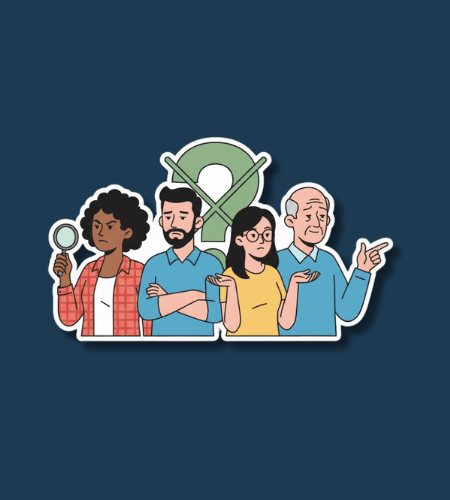National Skeptics Day is observed annually on November 4. It’s a day dedicated to celebrating questioning, critical thinking, and the practice of not accepting everything at face value.
Table of Contents
History of National Skeptics Day
The exact origin of National Skeptics Day is unclear—there’s no single founding organisation or event recorded. The date November 4 appears in holiday calendars and awareness lists as a consistent annual observance.
Why is National Skeptics Day important?
On this day I like to reflect on how easy it is to accept conventional wisdom, viral stories or common claims without stopping to ask: “What evidence supports this?” Celebrating skepticism isn’t about negativity—it’s about curiosity, investigation, and intellectual humility.
It also reminds us that in an age of rapid information and misinformation alike, critical thinking is a tool of empowerment. This day invites each of us to engage thoughtfully, question assumptions and lean into inquiry rather than passivity.
- It celebrates the value of asking questions rather than simply accepting answers
- It encourages humility in knowing that what we think we know might change with new evidence
- It supports the idea that reasoning, evidence and debate are central to knowledge
- It highlights the difference between healthy skepticism and cynicism
- It gives us permission to pause, reflect and verify what we believe
How to Celebrate National Skeptics Day
You don’t need a grand conference plan—just a mindset and a little reflection. Take a claim you’ve heard recently—maybe on social media, news or in conversation—and check out what evidence supports it. Notice how you approach the claim: do you seek data, ask questions, or rely solely on trust?
You might also invite discussion with someone: ask them what they believe and why, how they evaluate claims, or what sources they trust. Sharing your process of skepticism becomes an act of connection and learning, not confrontation.
- Choose one belief or claim you have and ask: What evidence supports this? What might challenge it?
- Read or listen to a podcast that explores skepticism, critical thinking, or how we form beliefs
- Engage with someone in conversation about how they come to “know” something—what sources, what reasoning
- Share one thing you questioned this week on social media under the hashtag #NationalSkepticsDay
- Make a personal “skeptic’s checklist”: pause, ask, verify, reflect—before accepting a claim
National Skeptics Day Dates Table
| Year | Date | Day |
|---|---|---|
| 2026 | November 4 | Wednesday |
| 2027 | November 4 | Thursday |
| 2028 | November 4 | Saturday |
| 2029 | November 4 | Sunday |
| 2030 | November 4 | Monday |
Subscribe to our newsletter and never miss a holiday again!

